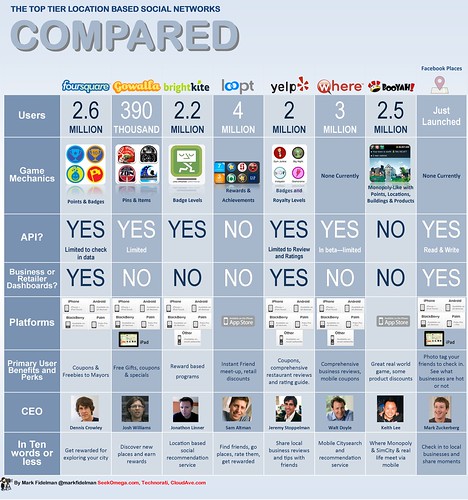
Location-based service(LBS) is an information or entertainment service offered based on a location of a particular person – commonly utlizing the ability to access geographical location using a particular device such as mobile phone.
Geographical location of a particular person can be identified by using three methods
- Mobile Network Based
- Device Based
- Hybrid
Mobile Network Based means that the location of the device is identified by getting the location of radio cell. This will heavily depends on the location of the service providers network infrastructure.The accuracy of the method varies, depending on whether it uses cell identification or triangulation of multiple cell towers. Factors such as the concentration of the base station will affect the accuracy, for example in urban areas, the cell concentration is much higher thus the information will be much more accurate.
GPS Based means that the location of the particular device is obtained by utilizing the GPS technology. This will mean that the device will need to have a software and hardware to obtain the satellite signal as well as sufficient battery to maintain the lock. The key disadvantage of this method is that the battery life of the particular device will be severely affected as GPS is known to use a lot of power. In addition to that, it can take quite a long time to obtain a lock to several GPS satellites in order to get the proper triangulation and accuracy. This is the case as the device will need to roam to see which of the “birds” is available in to give the GPS signal locking.
Hybrid means that the location of a particular device is obtained by utilizing both the Mobile Network as as the GPS. This is usually known as assisted-GPS. Assisted-GPS used the best of both world where by it first obtains the approximate location of a particular device using Mobile Network. And from there, the location of the “available” locked satellites is obtained via the data channel. Then, the device will try to get a lock signal with the satellites. This address the problem of roaming and testing to see which are the satellites which is available to give the proper location at a particular area. This method of course addresses the locking issue, but it will require the phone to have data service as it will need to obtain satellite information via the mobile data network.
Location based services, as it further defined in social network space is an interactive service between different parties based on the location information. For example, two friends can share information on the best place to eat Steak in say, Singapore’s Orchard Road. or the best bagel on fifth avenue in New York city. Its typically being misconstrued as way for “Internet” companies to track where a person is. Yes, by the look at what the technology can offer – it can really do that now. But if one were to examine how it application works, LBS will require the user to “push” for location instead of the other way around. Thus, its not the case of tracking – but its the case of reporting the location. This is different from the services that is offered by Google Latitude, where the location is pushed to the server. But even with that, there are option for the user to push the location.

Privacy issues will continue plague the growth of location based services – as location based services means that one would be sharing their location with a third party. In order to overcome this issue, there must be some sort of level of trust that needs to be built between the service provider and the user. In addition to that, the user should also be aware of the risk that need to be taken when joining any location based service.
The following image compares the different type of Location Based Services.
